Hey there! Following up on a reference request is an important step in ensuring your application stands out. It shows your potential employer that you are proactive and respectful of their time, which can really make a difference. In this article, we'll explore some friendly and effective ways to reach out for that all-important reference. So, grab a cup of coffee and read on to find out how to craft the perfect follow-up letter!
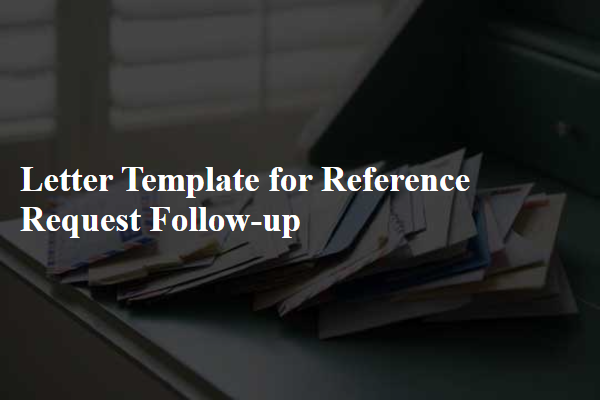
Subject Line Optimization
An effective subject line for a reference request follow-up email can significantly enhance open rates and engagement. For example, "Follow-Up: Request for Reference Regarding [Your Full Name]" provides clear context. Including the recipient's name, such as "Mr. Smith" or "Dr. Johnson," personalizes the communication. Additionally, incorporating time-sensitive elements like "Response Needed by [Specific Date]" encourages prompt replies. Using action words, such as "Kindly Requesting Your Support" or "Following Up on My Reference Request," makes the purpose clear while maintaining professionalism. Aim for brevity; a subject line should be concise, no longer than 50 characters, to ensure it remains readable on various devices.
Personalization
A personalized follow-up on a reference request can significantly enhance the chances of a positive response. Begin by recalling specific details about the person you are contacting, such as their full name, relationship with you, and any past collaborations or shared experiences. Mention the particular position or opportunity you are pursuing, for example, a marketing analyst role at a technology firm. Highlight the timeline for the reference submission, perhaps due by the end of the week, and express appreciation for their support. Reinforce how their insights into your skills, such as analytical thinking or project management, can greatly impact your application. A personal touch, such as a shared memory or compliment on their expertise, can make your request even more compelling.
Polite Reminder
A polite reminder for a reference request is essential for maintaining professionalism and securing timely responses. After an initial request, it's important to gently nudge the individual, ideally within a week or so. The reminder can reiterate the significance of the reference, especially if tied to a competitive application process such as job opportunities or graduate programs. Specific details about the position or program, along with the deadline for submission, should be included for clarity. Acknowledging their busy schedule while expressing gratitude for their potential support can foster a positive response.
Call to Action
Many professionals often seek reference letters to enhance their job applications or academic pursuits. A polite follow-up can significantly increase the chances of receiving these letters. When reaching out, individuals should mention the date of the initial request along with any specific details pertaining to the intended application or deadline. For instance, if applying for a senior marketing position at ABC Corporation with a closing date of January 15, express appreciation for the potential reference's previous support. Providing pertinent information, such as the specific skills or experiences that align with the new role can help guide the reference. A clear and respectful call to action should encourage the recipient to complete the request by reiterating the importance of their endorsement in the process.
Availability for Questions
A reference request follow-up provides an opportunity to check in with a former employer or colleague regarding a recommendation letter. This communication may involve the position title, such as Marketing Manager, at a notable company like XYZ Corp in Los Angeles. It's crucial to express appreciation for their assistance, mentioning the importance of their insights in the application process. Additionally, confirming their availability for any questions can encourage a more detailed endorsement that may enhance the candidacy. Providing a timeframe for when the reference is needed can also create a sense of urgency, motivating a prompt response.

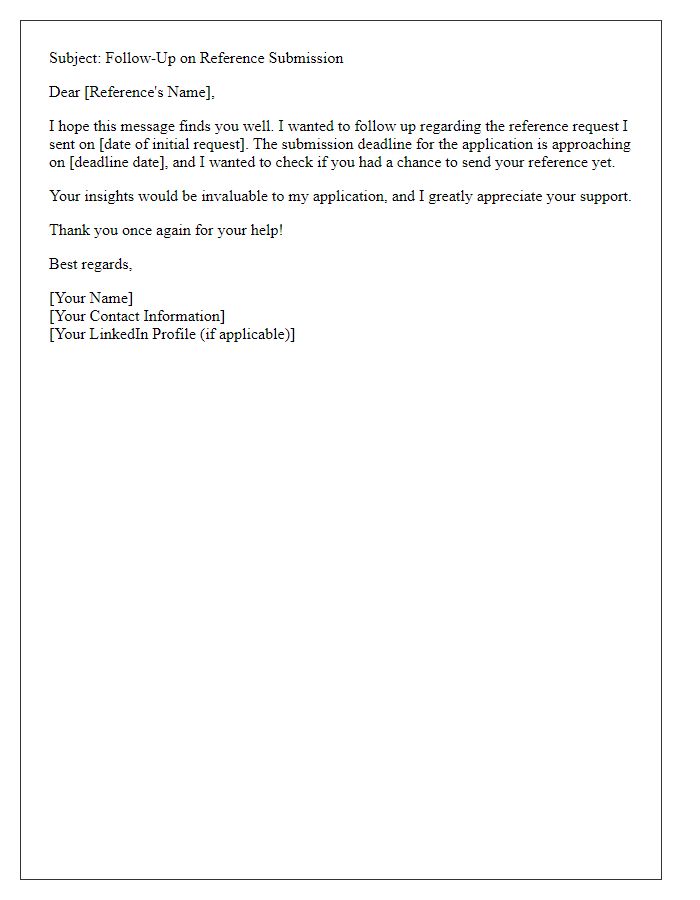
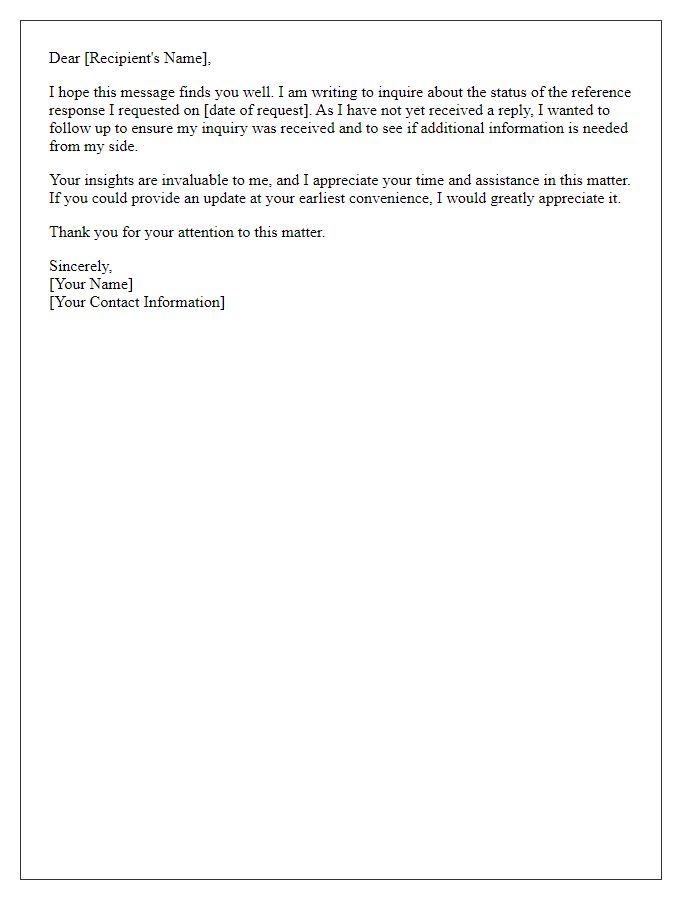
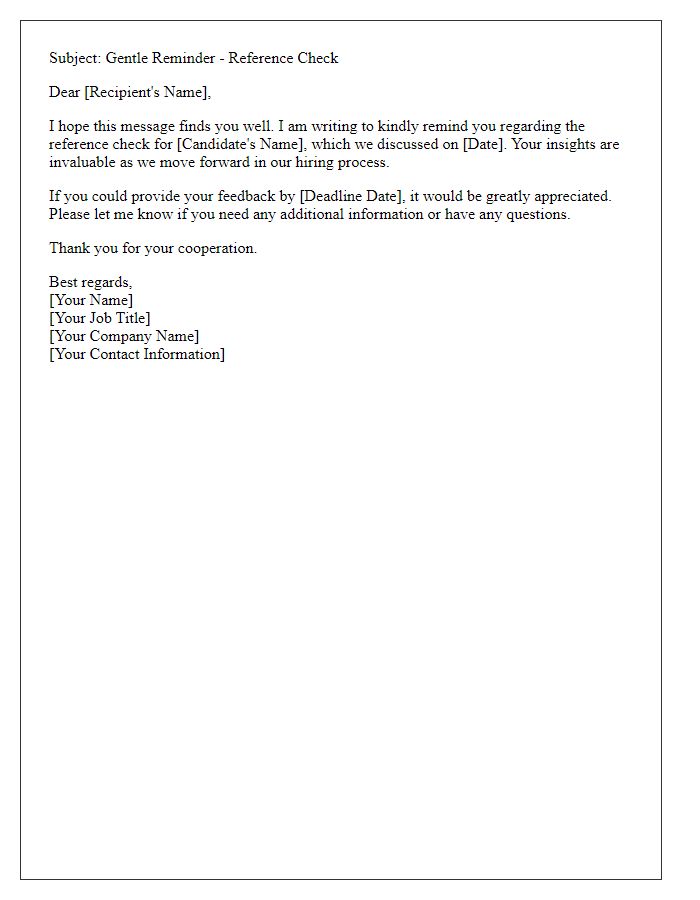
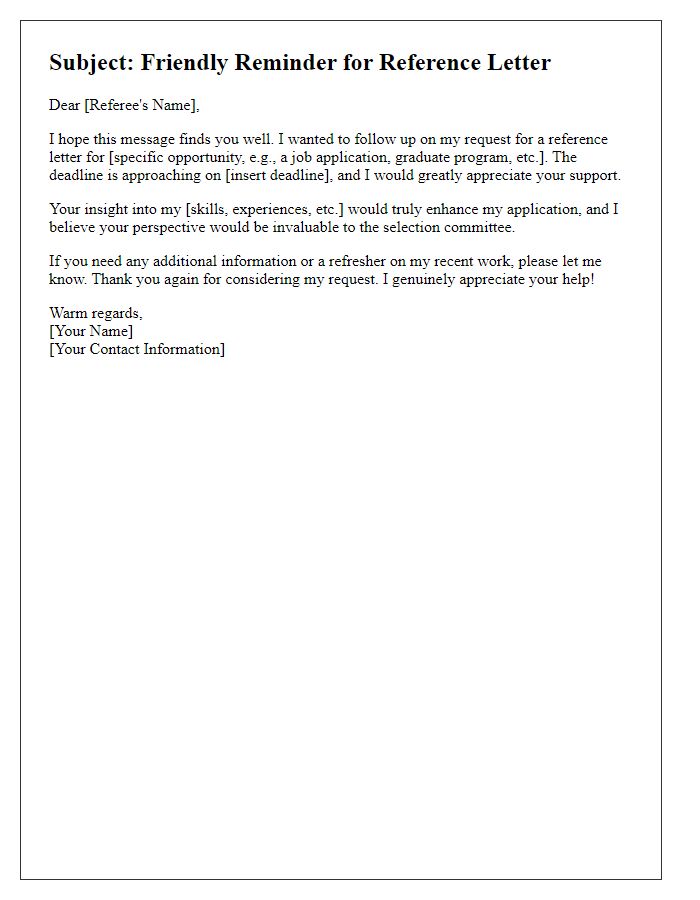
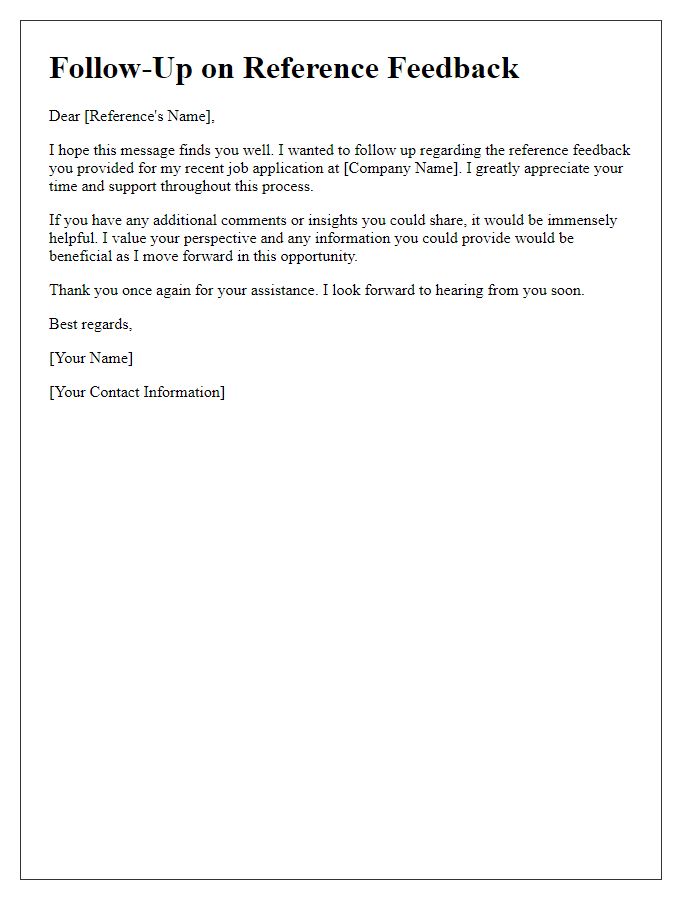
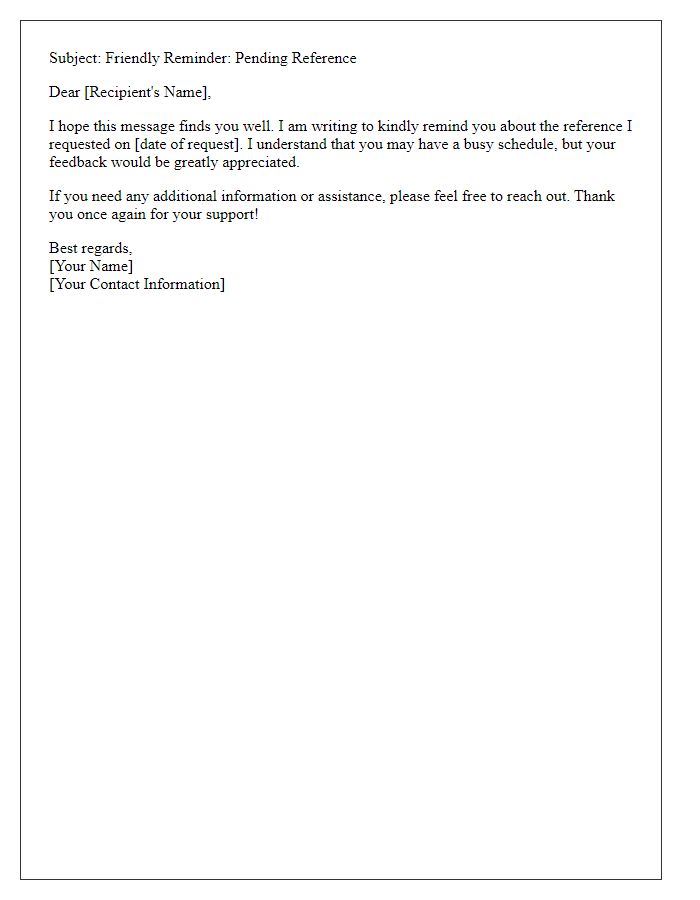
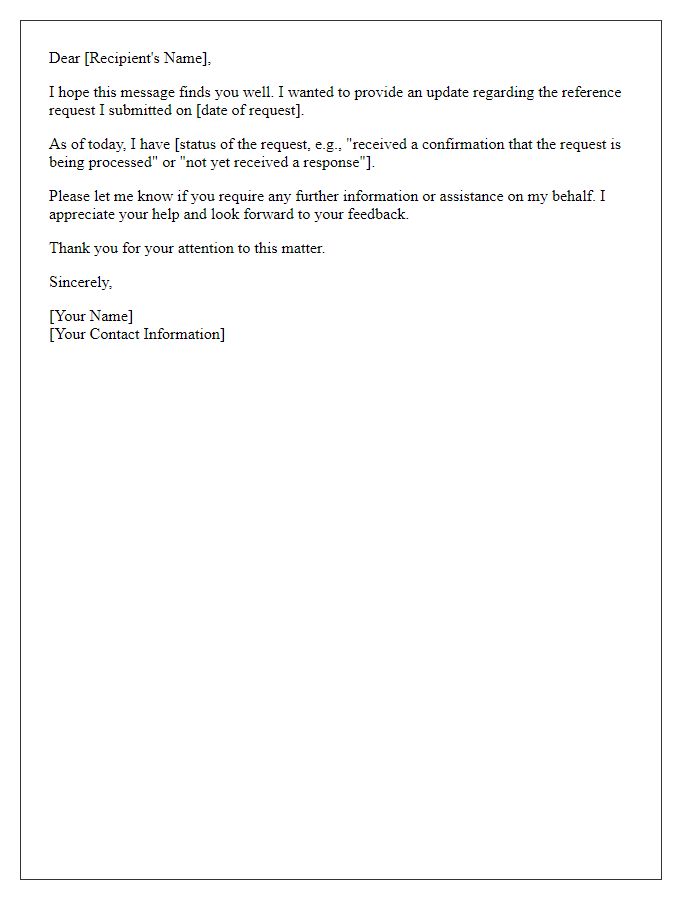
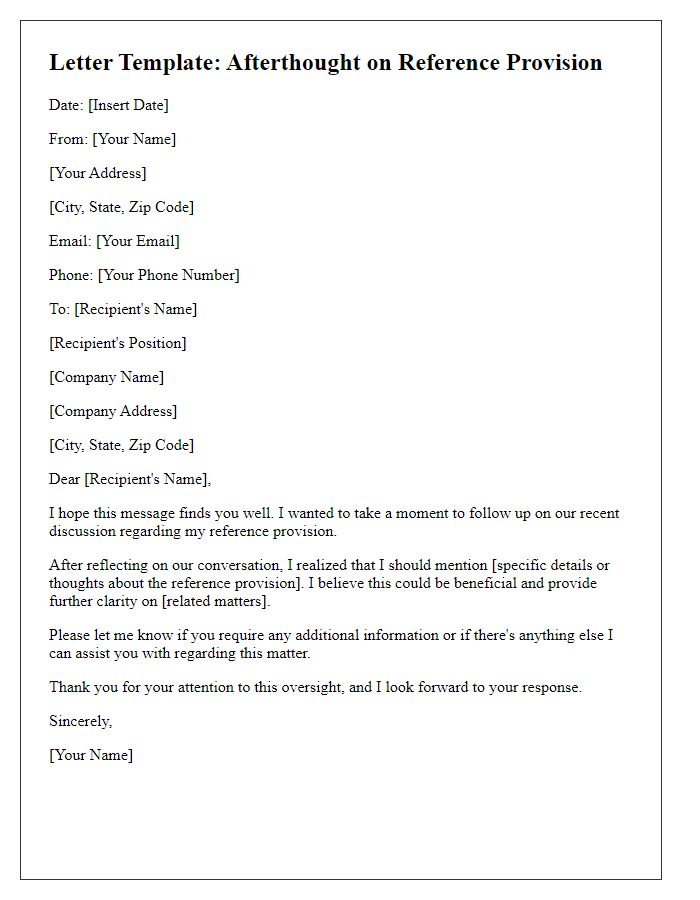
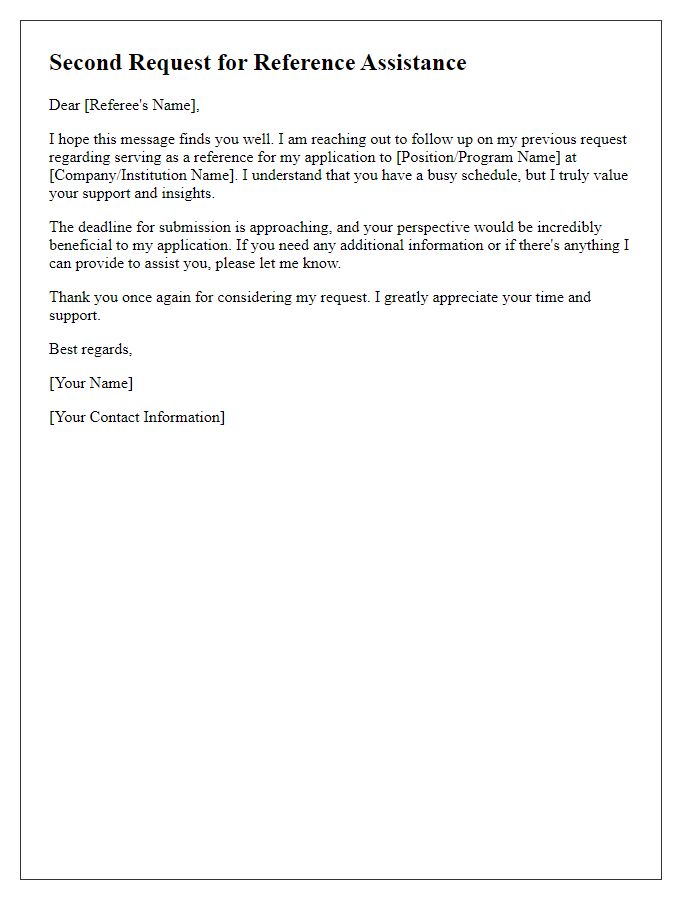
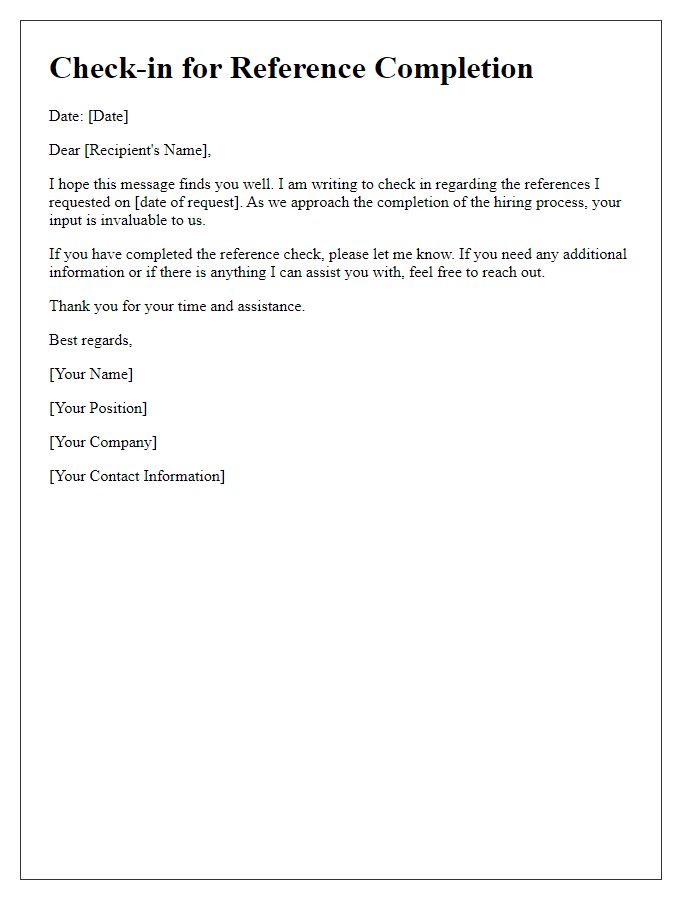

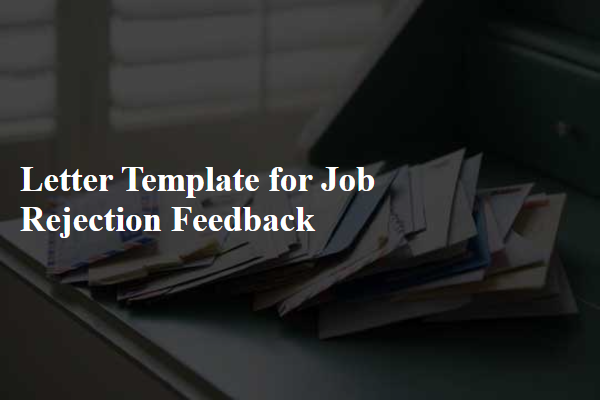
Comments